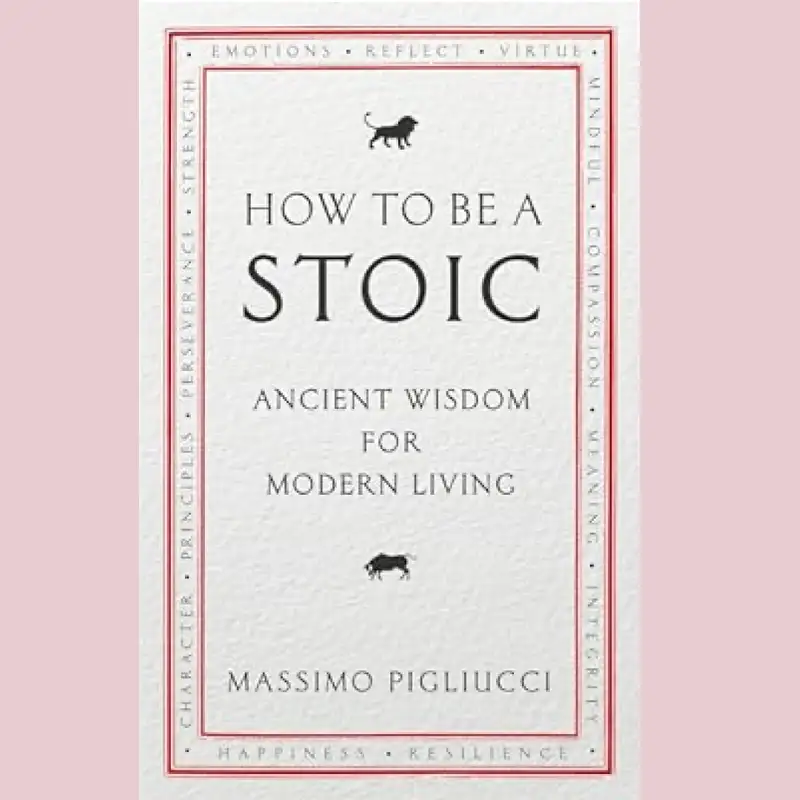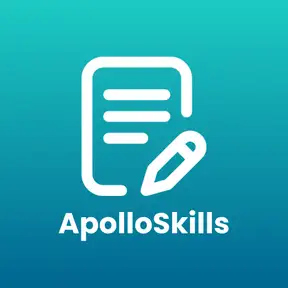How to Be a Stoic by Massimo Pigliucci
Discover how Stoic you are with this practical guide to Stoic living based on Massimo Pigliucci’s “How to Be a Stoic.” Learn fundamental principles and valuable tips, and take an insightful Stoic living assessment to enhance your resilience, mindfulness, and overall well-being.
👉 Free Course on https://www.apolloskills.com/courses/bestoic
👉 Free Course on https://www.apolloskills.com/courses/bestoic
“How to Be a Stoic: Using Ancient Philosophy to Live a Modern Life” by Massimo Pigliucci offers a practical guide to applying Stoic philosophy in contemporary life. Here’s a summary of its key themes and concepts:
Core Concepts of Stoicism
1. The Stoic Dichotomy of Control: Stoicism's heart is the distinction between what we can control and what we cannot. Stoics focus their energy on their thoughts, actions, and reactions, accepting that external events and the actions of others are beyond their control.
2. Virtue as the Highest Good: Stoics believe that the only true good is virtue, defined as wisdom, courage, justice, and temperance. Living a virtuous life leads to eudaimonia or flourishing.
3. Emotional Resilience: Stoicism teaches that emotions arise from our judgments about events, not the events themselves. By changing our perspectives, we can manage our emotions more effectively.
Practical Applications
1. Daily Practices: Pigliucci emphasizes the importance of daily reflection and practices such as journaling, negative visualization (imagining loss or hardship), and mindfulness to cultivate awareness and resilience.
2. Stoic Exercises: He introduces exercises such as the “view from above” to gain perspective on problems and practice gratitude to foster appreciation for what we have.
3. Interpersonal Relationships: Stoicism encourages compassion and understanding towards others, recognizing that everyone is doing their best within their circumstances.
Key Stoic Figures
• Pigliucci explores the thoughts of critical Stoic philosophers like Epictetus, Seneca, and Marcus Aurelius, drawing lessons from their writings and how these ideas can be integrated into modern life.
Modern Relevance
1. Navigating Challenges: The book discusses how Stoicism can help individuals navigate personal challenges, societal pressures, and the complexities of modern living.
2. Mindful Living: Stoicism is presented as a pathway to mindfulness, encouraging readers to live in the present and focus on their values rather than external validation.
Conclusion
“How to Be a Stoic” serves as both a philosophical treatise and a practical guide. It encourages readers to adopt a Stoic mindset to improve their lives, find peace in the face of adversity, and cultivate a meaningful existence. Pigliucci’s blend of ancient wisdom with modern examples makes Stoicism accessible and applicable to everyday life.
👉 Free Course on https://www.apolloskills.com/courses/bestoic
★ Support this podcast on Patreon ★
👉 Free Course on https://www.apolloskills.com/courses/bestoic

